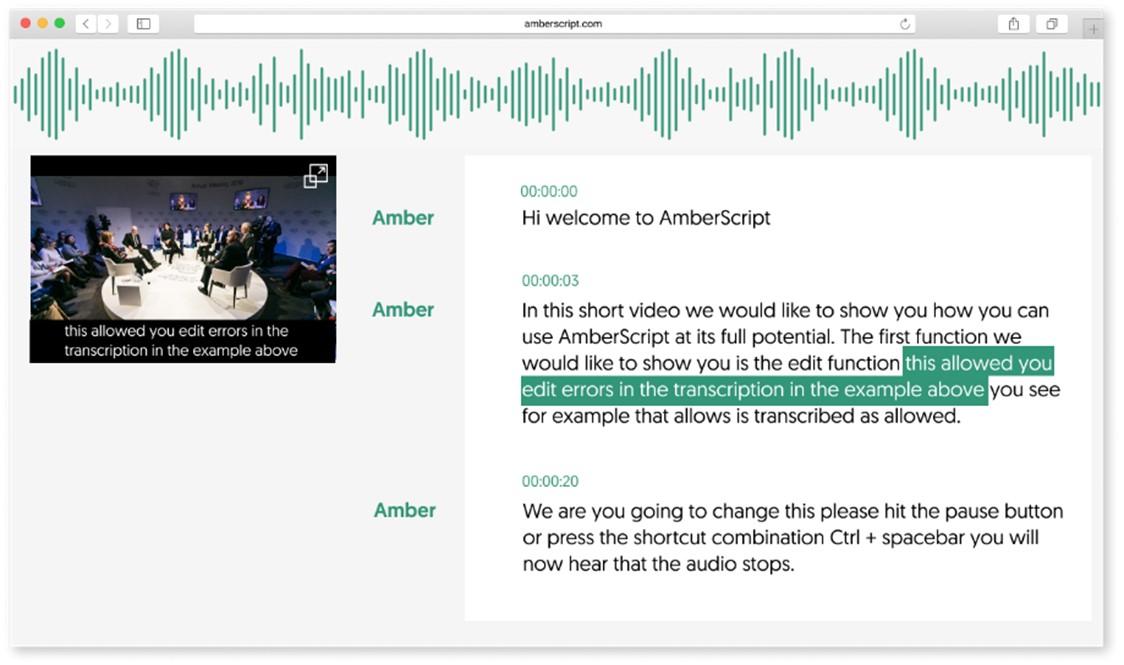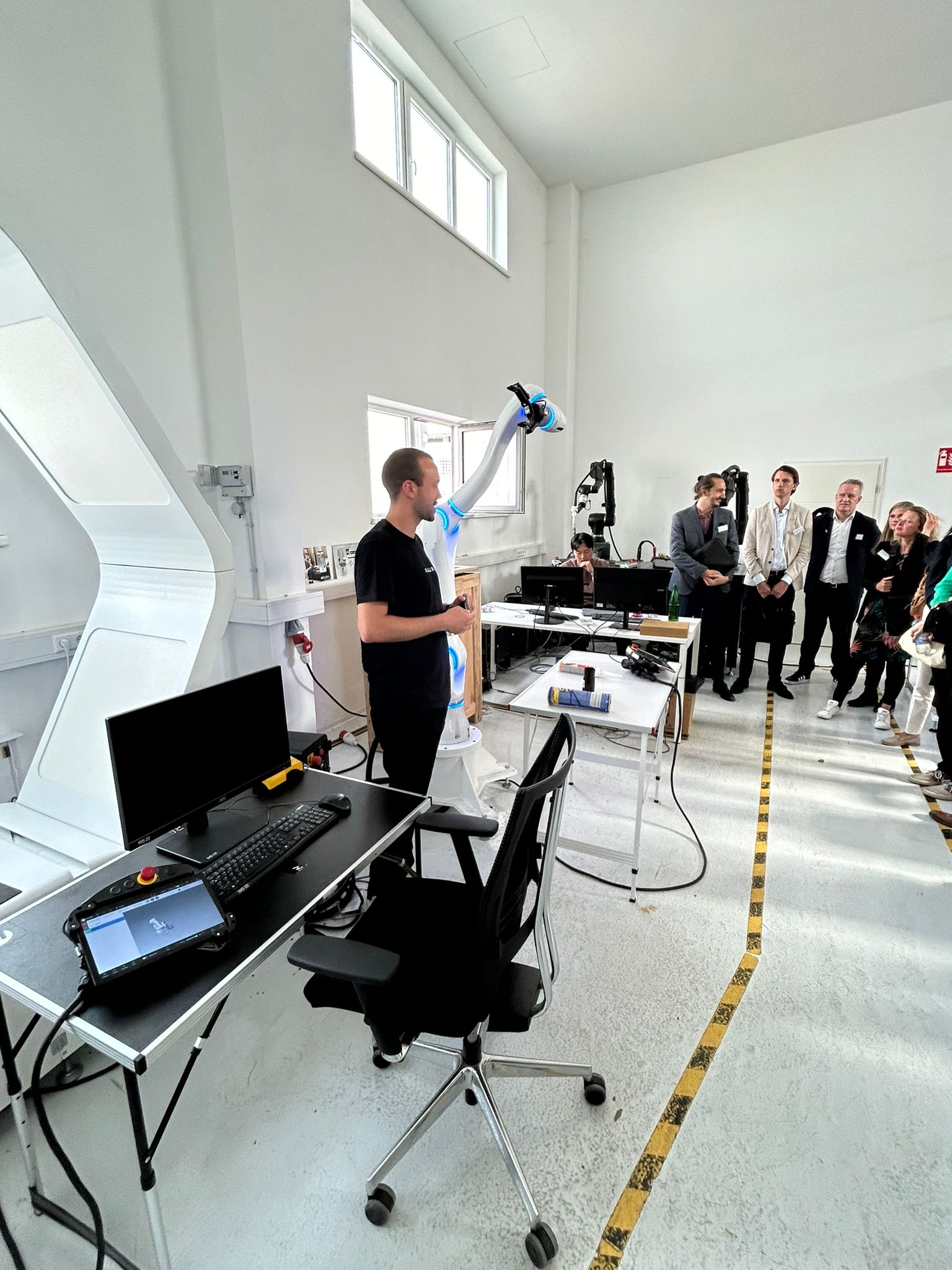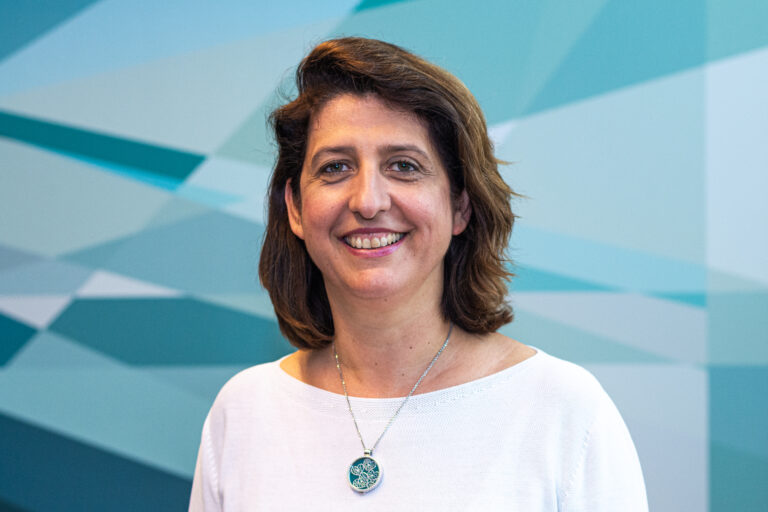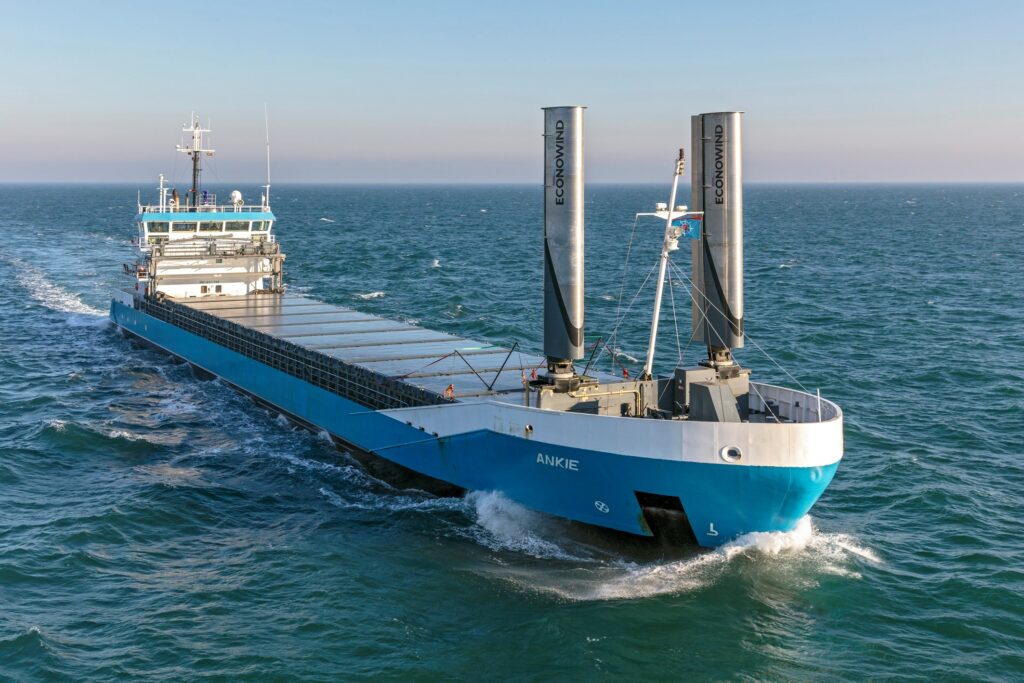In the Netherlands, about 1.5 million people are deaf or hard of hearing (source: Hoormij). Many public institutions and various privately-owned organisations are required by international law to provide subtitles for videos that are published online in order to comply with the Web Content Accessibility Guidelines (WCAG 2.1), i.e. ‘digital accessibility’. This means that everyone, including those with functional disabilities, has the same access to digital content.
Using artificial intelligence
Until now, creating transcripts and subtitles was expensive and time-consuming. Artificial intelligence (AI) and speech recognition accelerate this process and cut the costs. Amberscript helps governmental authorities, universities, media companies and others to save the time and effort of manually transforming audio or video into 100% accurate text and subtitling. They make models especially for European languages for automatically converting speech to text that achieve the highest accuracy available on the market. Models that are trained for specific customers come very close to the level of accuracy achieved by humans.
Amberscript also offers an online text processor. This allows an audio or video file to be uploaded very simply, after which the audio is ‘pasted’ into the text and users (or the human transcription staff at Amberscript ) can easily correct the errors from the speech recognition model and take the text up to an accuracy level of 100%. The modifications made in the text processor are stored and used as training data, resulting – over the course of time – in fewer errors in the automatic speech recognition.
What challenge does it solve?
Mass accessibility of audio and video by converting it into text was not possible before the start of Amberscript because of the major efforts required in creating transcripts or subtitles manually. The services provided by Amberscript provide high accuracy, throughput and ease of use for a low cost. Moreover, a great deal of attention is paid to security and privacy as required by the GDPR.
Amberscript develops speech recognition models that are specifically trained for a particular language. It does the subtitling of more than half of all Dutch municipal council gatherings, for instance, using an engine that has been trained for the language used in politics and consequently gives very accurate results. With backing from the Ministry of Economic Affairs and Climate Policy, a speech recognition model is under development that is being trained specifically for universities. Speech recognition models are also tailor-made for customers. This is creating more and more options for providing access to digital content for the deaf and hard of hearing.

Interested?
Amberscript’s product now has more than 1,000,000 users and that number is still growing, including use by those who are deaf or hard of hearing and making content accessible, doctors who record conversations with patients, and researchers transcribing qualitative research interviews. Amberscript can be used free of charge for converting 10 minutes of video. Integrations with video management systems are available for educational institutions so that subtitles (including automatically generated ones) can be integrated easily.
More information
For more information about transcription using AI, please visit the Amberscript website or contact Peter-Paul de Leeuw through peterpaul@amberscript.com.






